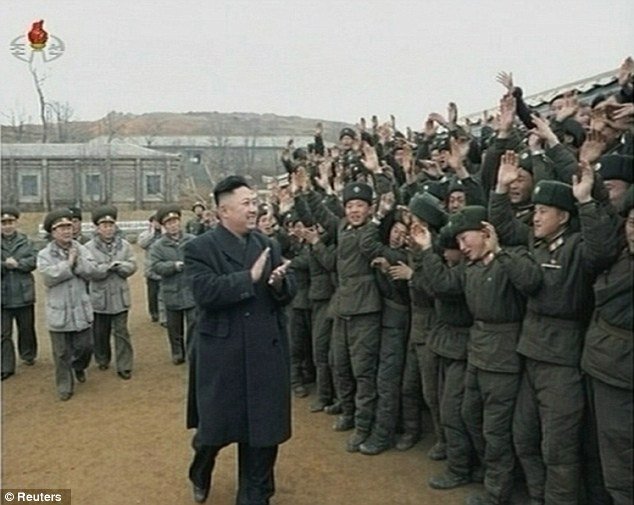
China has appealed for calm on the Korean peninsula, hours after North Korea said it had ended all non-aggression pacts with South Korea and threatened pre-emptive nuclear strikes.
China, North Korea’s only major ally, said all sides should continue to talk and avoid “further escalation”.
Pyongyang has reacted angrily to another round of sanctions imposed by the UN over its recent nuclear test.
The sanctions restrict luxury goods imports and banking activities.
Beijing provides fuel, food and diplomatic cover to Pyongyang.
It has repeatedly voted in favor of UN sanctions imposed over the nuclear programme, but enforcement of the measures in China is patchy.
Hua Chunying of China’s foreign ministry told a news conference on Friday: “China and North Korea have normal country relations. At the same time, we also oppose North Korea’s conducting of nuclear tests.
“China calls on the relevant parties to be calm and exercise restraint and avoid taking any further action that would cause any further escalations.”

Chinese and US officials drafted the UN resolution passed on Thursday.
It contains similar measures to earlier resolutions, but the US said it had significantly strengthened the enforcement mechanisms.
In response, the North Korean regime published a message on the official KCNA news agency saying it had cancelled all non-aggression pacts with the South.
The two Koreas have signed a range of agreements over the years, including a 1991 pact on resolving disputes and avoiding military clashes.
However, analysts say the deals have had little practical effect.
The KCNA report detailed other measures including:
- cutting off the North-South hotline, saying there was “nothing to talk to the puppet group of traitors about”
- closing the main Panmunjom border crossing inside the Demilitarized Zone that separates the two countries
- pulling out of the armistice that ended the Korean War.
The North also claimed it had a right to launch a pre-emptive nuclear strike against its enemies.
The threat drew an angry response from South Korea’s defence ministry spokesman Kim Min-seok, who said that the North would become “extinct from the Earth by the will of mankind” if it took such an action.
The US state department said such “extreme rhetoric” was not unusual, but said the US was well protected.
North Korea has breached agreements before and withdrawing from them does not necessarily mean war, but it does signal a more unpredictable and unstable situation.
[youtube nf9KJls-EW4]